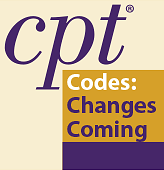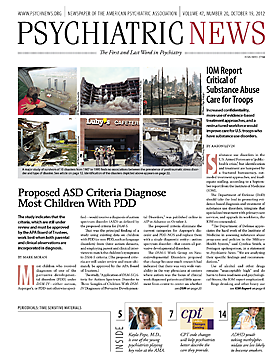Aubiquitous feature somewhere in the offices of every physician and health care institution is the Handbook of Current Procedural Terminology—CPT, the book of codes copyrighted by the AMA and used by physicians and other health care professionals to record the procedures they use to treat patients.
Arguably, it might be the most important document in a doctor’s office, since the codes are submitted to public and private payers, and the values assigned to them determine the payment that physicians receive for the work they do.
Moreover, the codes and the values assigned to them have changed over time and continue to be reviewed and updated. On January 1, 2013, major changes to the codes in the psychiatry section of the handbook will go into effect (see Major CPT Coding Changes Coming Soon: Start Preparing Now).
But where did this document come from? How does a service become a code, and how does a code get valued to result in a fee?
Psychiatrist Tracy Gordy, M.D., who from 1999 to 2007 was chair of the CPT Editorial Panel that oversees development of codes, told Psychiatric News that CPT was begun by the AMA in the mid-1960s not as a tool for reimbursement, but for research. “At the time there was no way to accumulate data about the kind or amount of services physicians provided,” Gordy said. “The AMA took it on with one physician overseeing development of the codes.”
With successive editions of the CPT handbook, the AMA appointed an editorial panel that has now grown to include physician representatives from 17 specialties in the House of Delegates appointed by the AMA Board of Trustees. In the early 1980s the federal government began to use the CPT codes for reimbursement of physicians and health care institutions participating in Medicare; today, private insurers also use CPT, though they may value the codes differently.
Gordy said the CPT Editorial Panel meets three times a year, and a new code can be submitted by any physician or hospital, by any specialty society in the AMA House of Delegates, or by manufacturers of devices whose use requires a code. Code-change requests must be reviewed by the CPT Editorial Panel and a CPT advisory committee made up of physicians appointed by the specialty societies.
In 1991, physicians participating in the Medicare program began to be paid according to the Resource-Based Relative Value Scale (RBRVS), developed by Harvard economist William Hsiao, Ph.D., as a “rational” means of affixing a dollar value to the services provided by doctors, and hence to the codes submitted by them for reimbursement. At the heart of the RBRVS formula are two principles—it is resource based, meaning it aims to approximate the resources used by a physician to perform any procedure; and it aims for relative equality across procedures that involve similar skills, techniques, and resources.
So now, new and existing codes approved by the CPT panel are reviewed by a Relative Value Update Committee (RUC), a 29-member committee with representatives from the AMA and APA and other specialties who assign “relative value units” (RVUs) to each code based on the work involved “relative” to other similar codes.
The codes and their relative value units are then submitted to the Centers for Medicare and Medicaid Services (CMS), which assigns a “conversion factor”; the latter is a variable derived from the capitated amount of money allowed to the CMS by the federal Office of Management and Budget for the entire Medicare budget. The resulting figure—RVU x the conversion factor—is the fee paid to a physician for every service he or she provides.
Gordy emphasized the importance of the new changes to psychiatry codes, especially the elimination of 90862, the long-used standard psychiatric pharmacologic management code, and its replacement with existing evaluation and management (E/M) codes used by all physicians. The use of those E/M codes allows for levels of complexity that will make it possible to better capture the clinical work psychiatrists do with their patients.
“Psychiatrists have been reluctant to learn E/M codes though they have been available for years,” Gordy said. “These codes will enable them to improve their income because the E/M codes more accurately describe the work psychiatrists do with medically complex psychiatric patients.”



